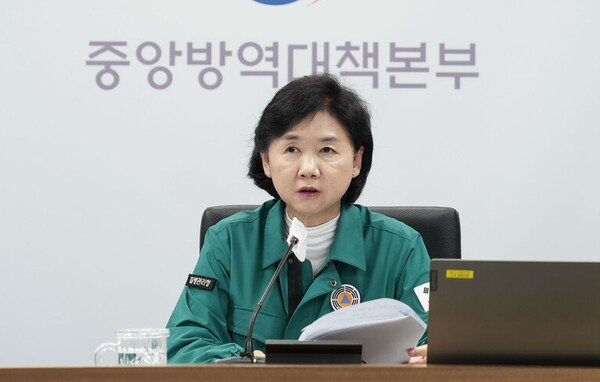The Korea Disease Control and Prevention Agency (KDCA) will downgrade the Covid-19 pandemic from Level 2 to Level 4, the lowest of the country's infection level, on Aug. 31, the agency's chief said on Wednesday.

The move comes after cases in the country have been finally slowing down.
According to the KDCA, the agency confirmed a daily average of 40,400 new cases for the week of Aug. 15-21, down 17.7 percent from a week earlier, ending the previous seven consecutive week increase.
"It's time to shift our focus to protecting high-risk groups rather than counting and managing the number of daily cases," KDCA Commissioner Jee Young-mee said Wednesday while chairing a Central Disaster Management Headquarters meeting. "We are confident we can manage Covid-19 within the general medical system."
Jee stressed that when the infectious disease level is downgraded, the agency will no longer report on the daily number of confirmed cases, which has been ongoing for three years and seven months.
"However, during the downgrading transition, high-risk groups, such as the elderly and immunocompromised patients, still need to be protected," Jee said. "To that end, we will continue to require masks in hospitals for the time being."
The government will also maintain some support measures for public medical expenses related to Covid-19 so that people with symptoms can receive prompt diagnosis and treatment, she added.
Jee stressed that health insurance will temporarily cover a portion of the cost of rapid antigen tests for high-risk groups, such as those aged 60 and older, and the government will continue to operate screening clinics for free PCR testing at high-risk and vulnerable facilities.
"We will also support part of the hospitalization costs of severely ill patients until the end of the year and provide vaccines and treatments free of charge to minimize the burden on the public," Jee said.
Related articles
- ‘Downgrade of Covid-19 response will reveal overburdened healthcare system’
- 99.8% of 10,000 Koreans surveyed had Covid-19 antibodies: study
- Korea postpones lowering Covid-19's infectious level
- KDCA chief vows ‘caution in Covid-19’s transit to 4th-grade infectious disease’
- Rapid antigen test for Covid-19 no longer free in Korea from Aug. 31
- Korea reports 1st case of Pirola, the new variant of Covid-19

